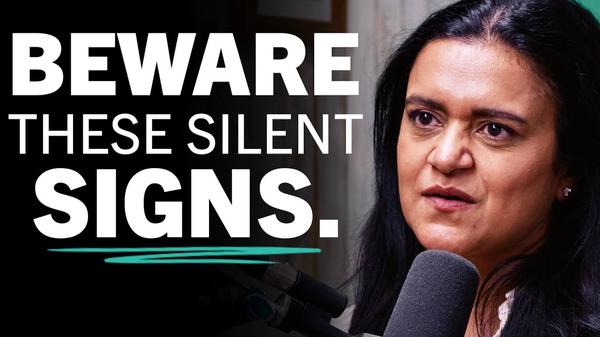Building & Changing Habits | James Clear
Peter Attia
Dec 30, 2024
Mindsip insights from this episode:
Focus on daily habits to achieve success, not just goals
Since both winners and losers often share the same goal, the goal itself is not the distinguishing factor for success, but rather the system of daily habits is.
Invest in good habits now to avoid future costs
The cost of your good habits is paid in the present, while the cost of your bad habits is paid in the future.
Add friction to break bad habits and control cravings
A practical way to control cravings is to add friction, like freezing cookie dough and only baking a few at a time, making it just inconvenient enough to prevent overindulgence.
Get back on track quickly to maintain habit consistency
The key to long-term consistency is not perfection but getting back on track quickly, as it's rarely the first mistake that ruins you, but the spiral of repeated mistakes that follows.
Scale habits down to two minutes for effective establishment
To build a new habit, scale it down to something that takes two minutes or less, because a habit must be established and become the standard before it can be improved.
Transform habits to improve health, finance, and knowledge results
Your current results in health, finance, or knowledge are simply a lagging measure of the habits that you have repeated over time.
Harness dopamine spikes to drive motivation before rewards
The neurochemical dopamine, crucial for motivation, spikes in anticipation of a reward, not from the reward itself, which is what drives you to act.
Discover fit activities to cultivate perseverance and discipline
Perseverance and discipline emerge naturally when you find activities that are a good fit for your interests and genetic predispositions, as it's hard to beat the person who is having fun.
Transform identity to drive profound behavior change
The most profound behavior change comes from focusing on the type of person you wish to become, as every action you take is a vote for that identity.
More from
Peter Attia
AMA #78: Longevity interventions, exercise, diagnostic screening, and managing high apoB, hypertension, metabolic health, and more
Ketogenic diet, ketosis & hyperbaric oxygen: metabolic therapies for weight loss, cognition, Alzheimer's & more | Dom D'Agostino, Ph.D.
The evolutionary biology of testosterone: how it shapes male development and sex-based behavioral differences, | Carole Hooven, Ph.D.
The impact of gratitude, serving others, embracing mortality, and living intentionally | Walter Green (#288 rebroadcast)
Thyroid function and hypothyroidism: why current diagnosis and treatment fall short for many, and how new approaches are transforming care | Antonio Bianco, M.D., Ph.D.
You also might be interested in
The Hidden Damage That Happens "Behind-The-Scenes" In The Adult Entertainment Industry, With Former Adult Actress Felicity Feline
How to Set & Achieve Goals | Huberman Lab Essentials
The Science of Erotic Altered States | Biohacking Sex
Neuroscientist: If You’re Feeling THIS, You’ve Lost Touch With Your True Self
Neuroscientist: If You Feel THIS, You're Living the Wrong Life (Unlock The One You're Meant For)








